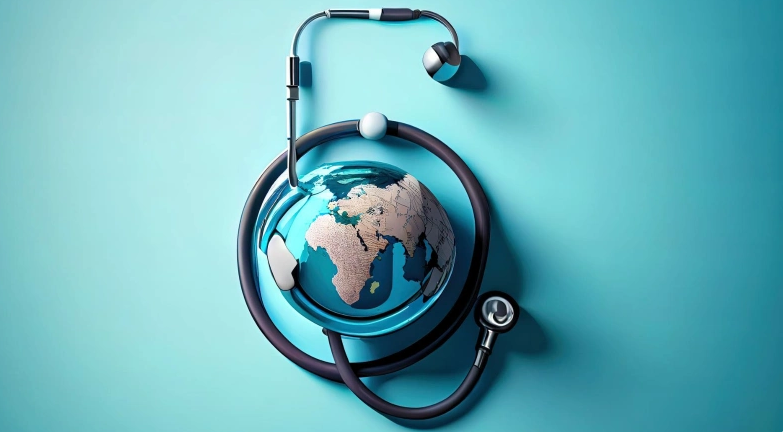Medical tourism is experiencing a surge in popularity due to several benefits and advantages it offers to patients seeking healthcare services. Here are some reasons why it’s on the rise:
1 ) Cost Savings: One of the primary reasons people opt for medical tourism is the significant cost savings. In many countries, particularly in Asia, Latin America, and Eastern Europe, medical procedures can cost a fraction of what they do in countries like the United States or parts of Europe. This includes not only the procedure itself but also associated costs like hospital fees, accommodations, and travel expenses.
2 ) High-Quality Care: Despite lower costs, many medical tourism destinations offer high-quality healthcare services. Hospitals and clinics in popular medical tourism hubs often boast state-of-the-art facilities and employ highly skilled doctors and medical staff. Some facilities even have international accreditation, ensuring patients receive top-notch care.
3 ) Reduced Waiting Times: In countries with public healthcare systems, long waiting times for elective procedures are common. Medical tourism allows patients to bypass these queues and receive treatment more promptly. This is particularly advantageous for individuals in need of non-urgent procedures who don’t want to wait months or even years for treatment.
4) Access to Specialized Treatments: Certain medical procedures may not be readily available or approved in a patient’s home country. Medical tourism provides access to a broader range of treatments and specialists, including experimental or cutting-edge therapies that may not be accessible domestically.
5 )Privacy and Confidentiality: Some patients prefer to seek medical treatment away from their hometowns to maintain privacy and confidentiality, especially for sensitive procedures. Medical tourism allows individuals to receive care discreetly without concerns about encountering acquaintances or colleagues.
6 ) Combining Treatment with Travel: For many patients, medical tourism offers the opportunity to combine healthcare with travel. Patients can undergo treatment in exotic or culturally rich destinations, allowing them to recuperate in a relaxed and enjoyable environment. This aspect can contribute to the overall healing process and improve the patient’s well-being.
7 ) Comprehensive Packages: Many medical tourism agencies or facilitators offer comprehensive packages that include not only medical treatment but also travel arrangements, accommodation, transportation, and even post-operative care. These packages streamline the entire process for patients, making it easier to plan and execute their medical journey.
8 ) Cultural and Linguistic Considerations: Patients may choose medical tourism destinations where they feel more comfortable culturally or where English-speaking healthcare professionals are readily available. This can enhance the overall patient experience and facilitate communication between patients and healthcare providers.
9 ) Despite these advantages: it’s important for patients to thoroughly research their options, including the credentials of healthcare providers and the safety standards of facilities, before embarking on a medical tourism journey. Additionally, patients should consult with their healthcare providers to ensure continuity of care and appropriate follow-up after returning home.
Why Medical Billers and Coders are so important to the U.S. healthcare system
Medical billers and coders play a critical role in the U.S. healthcare system for several reasons:
1 ) Accuracy and Efficiency: Medical billers and coders ensure that medical records are accurately translated into standardized codes. These codes are essential for billing purposes and also help in tracking diseases, treatments, and outcomes. By accurately coding and billing for services, they help healthcare providers receive proper reimbursement, which is crucial for the financial health of medical practices and facilities.
2 ) Compliance: Medical billing and coding professionals must stay up-to-date with constantly changing regulations and guidelines set by government agencies and insurance companies. Ensuring compliance with these regulations is essential to avoid penalties and legal issues for healthcare providers.
3 ) Revenue Cycle Management: They manage the revenue cycle of healthcare facilities, from verifying insurance coverage and eligibility to submitting claims and following up on payments. Efficient revenue cycle management ensures timely payments, which is essential for the financial sustainability of healthcare organizations.
4 ) Patient Experience: Billing errors and delays in claims processing can lead to frustration and dissatisfaction among patients. Medical billers and coders strive to minimize such issues by accurately and promptly processing claims, addressing billing inquiries, and helping patients understand their insurance coverage and financial responsibilities.
5 ) Healthcare Data Analysis: Coded medical data is invaluable for healthcare analytics, research, and public health initiatives. Medical billers and coders contribute to the collection of data that can be analyzed to improve healthcare delivery, identify trends in diseases and treatments, and inform health policy decisions.
In summary, medical billers and coders are indispensable in ensuring the smooth operation of the healthcare system by accurately documenting patient care, facilitating reimbursement, maintaining compliance with regulations, and supporting the financial viability of healthcare organizations.
What Does a Medical Biller and Coder Do?
A medical biller and coder plays a crucial role in the healthcare industry by ensuring that healthcare providers receive proper reimbursement for their services. Here’s what they typically do:
1 ) Assigning Codes: They review patients’ medical records and assign appropriate diagnostic codes (ICD codes) and procedural codes (CPT codes) to the services provided during a patient’s visit. These codes are essential for billing and insurance purposes.
2 ) Insurance Claims: Medical billers and coders use the assigned codes to prepare and submit claims to insurance companies or government programs like Medicare and Medicaid. They ensure that the claims are accurate and comply with relevant regulations.
3 ) Billing Patients: In cases where patients are responsible for part of the payment (co-pays, deductibles, etc.), medical billers generate invoices and process payments.
4 ) Follow-Up on Claims: They track the status of submitted claims and follow up with insurance companies or patients to resolve any issues or discrepancies. This may involve providing additional information or appealing denied claims.
5 ) Compliance: Medical billers and coders must stay up-to-date with changes in coding guidelines, insurance regulations, and healthcare laws to ensure compliance and accuracy in their work.
6 ) Medical Records Management: They may also be responsible for organizing and maintaining patients’ medical records, ensuring that they are kept confidential and accessible when needed.
Overall, medical billers and coders play a vital role in the financial health of healthcare providers by ensuring accurate billing and reimbursement processes.






